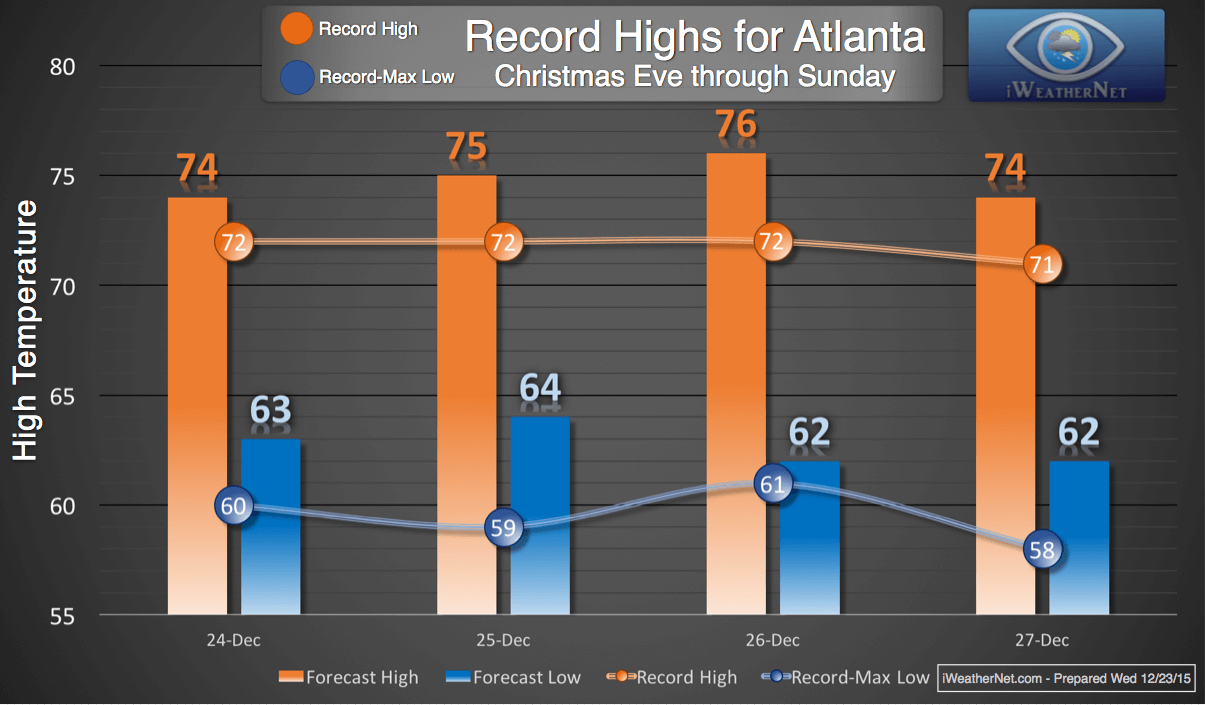Atlanta Weather: Your Daily Dose of Sunshine (or Storms!)
Atlanta, the capital city of Georgia, is known for its subtropical climate, with mild winters and hot, humid summers. Located in the southeastern United States, Atlanta experiences a diverse range of weather patterns throughout the year, making it an ideal destination for tourists and residents alike. In this article, we'll take a closer look at Atlanta's weather, including its average temperatures, precipitation patterns, and the best times to visit.
As one of the most populous cities in the United States, Atlanta's weather plays a significant role in shaping the city's economy, culture, and lifestyle. From outdoor events and festivals to indoor activities and sporting events, Atlanta's weather affects every aspect of life in the city. Whether you're planning a visit or calling Atlanta home, understanding the city's weather patterns is essential for making the most of your time in this vibrant metropolis.
Understanding Atlanta's Climate
Atlanta's climate is classified as humid subtropical, with mild winters and hot, humid summers. The city experiences a significant temperature variation throughout the year, with average temperatures ranging from 38°F (3°C) in January (the coldest month) to 87°F (31°C) in July (the warmest month).
Temperature Extremes
While Atlanta's temperature variation is noticeable, the city rarely experiences extreme temperatures. The highest temperature ever recorded in Atlanta was 104°F (40°C) on September 13, 1955, while the lowest temperature was -3°F (-19°C) on January 21, 1985. However, these extreme temperatures are rare, and the city's average temperature range is generally much more moderate.
Precipitation Patterns
Atlanta experiences a significant amount of precipitation throughout the year, with an average annual rainfall of 48 inches (122 cm). The city's precipitation patterns are influenced by its location in the southeastern United States, where warm, moist air from the Atlantic Ocean collides with cooler air from Canada.
Top 5 Most Precipitous Months
• January: 3.44 inches (87 mm)
• April: 4.21 inches (107 mm)
• May: 4.46 inches (113 mm)
• July: 4.35 inches (110 mm)
• October: 3.66 inches (93 mm)
Atlanta's Weather by Season
Atlanta's weather is divided into four distinct seasons, each with its unique characteristics and challenges.
Spring (March to May)
• Mild temperatures, with average highs in the mid-60s to low 70s (18°C to 22°C)
• Increased precipitation, with April and May being the wettest months
• Pollen season typically peaks in March and April
Summer (June to August)
• Hot and humid, with average highs often reaching the mid-90s (30°C to 35°C)
• High humidity, with an average relative humidity of 67%
• Tornadoes and thunderstorms are common during this time
Autumn (September to November)
• Comfortable temperatures, with average highs in the mid-60s to low 70s (18°C to 22°C)
• Decreased precipitation, with September being the driest month
• Leaves change colors in October and November
Winter (December to February)
• Mild temperatures, with average highs in the mid-40s to low 50s (7°C to 11°C)
• Cooler temperatures, with an average low of 25°F (-4°C)
• Freezing temperatures are rare, but not unheard of
Tips for Surviving Atlanta's Weather
While Atlanta's weather can be challenging at times, there are several tips for surviving the city's climate:
• Stay hydrated: Drink plenty of water, especially during the hot summer months
• Protect yourself from the sun: Wear sunscreen, hats, and sunglasses to prevent sunburn and heat exhaustion
• Be prepared for rain: Carry an umbrella or raincoat to keep dry during spring and fall showers
• Use air conditioning wisely: Keep your car and home air conditioning systems running at a moderate temperature to conserve energy and reduce air pollution
• Take advantage of winter events: Attend outdoor events and festivals, such as the Atlanta Winter Festival, to make the most of the mild winter weather
The Best Times to Visit Atlanta
Atlanta is a year-round destination, but some times of the year are better than others for visiting the city. Here are some tips for planning your trip:
• Spring: 3-4 months, from March to May, for optimal weather and outdoor events
• Fall: 3-4 months, from September to November, for comfortable temperatures and fewer tourists
• Summer: 6-8 months, from June to September, for outdoor events and festivals, but be prepared for the heat and humidity
• Winter: 2-3 months, from December to February, for outdoor events and festivals, but be prepared for cooler temperatures
Atlanta's Weather by Neighborhood
Atlanta's neighborhoods each have their unique weather patterns, influenced by factors such as elevation, exposure to sunlight, and proximity to waterways. Here's a breakdown of some of the city's most popular neighborhoods and their weather characteristics:
Midtown
• Mild temperatures, with an average annual rainfall of 46 inches (117 cm)
• Experience the city's vibrant nightlife and entertainment scene, but be prepared for occasional thunderstorms
Buckhead
• Hot and humid, with an average annual rainfall of 43 inches (109 cm)
• Experience the city's luxury shopping and dining scene, but be prepared for the heat and humidity
Inman Park
• Comfortable temperatures, with an average annual rainfall of 44 inches (112 cm)
• Experience the city's arts and culture scene, including outdoor events and festivals
Jessica Tarlov Husband
Keri Russell Related To Kurt Russell
Anna Malygon
Article Recommendations
- Piddy Passed Away
- Keean Johnson
- Nikki C
- Connieenio Case Pos
- Is Keri Russell Related To Kurt Russell
- Joshua Hammond Wrestling
- Aishahd
- Charissa Thompson
- Mike Lindell Wife 2024
- Michaelaly Parents



